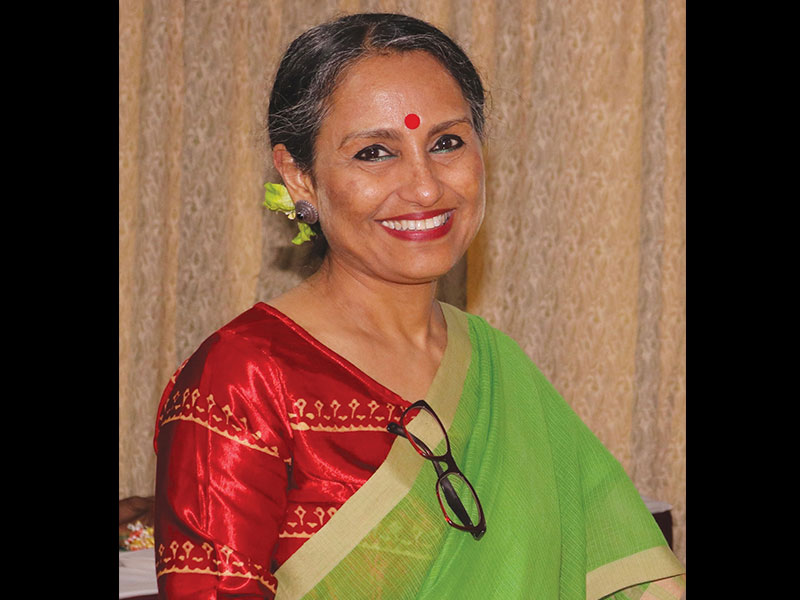
Are you satisfied with NEP 2020’s proposals for revamping teacher education?
Far from being satisfied, I am sceptical about how the proposed reforms will translate into norms and practice in the next three, five, even ten years. The teacher education reforms proposed by the NEP 2020 reads like a laundry list of ‘good-to-have’ items.
What’s your comment on the proposed four-year integrated B.Ed degree programme? Should the policy have also provided for lateral entry from other professions?
There is provision in NEP 2020 for shorter-term teacher training programmes. Graduates with a three-year undergrad degree have the option to complete a two-year B.Ed programme and graduates with a four-year undergrad degree can enroll for a one-year course. I believe this will enable more people, especially mature students, to make lateral entry into the teaching profession. However, I would have liked more flexibility through the development of high quality ‘teaching schools’ in every district and administrative block, which would work in close conjunction with higher education institutions (HEIs) offering B.Ed courses. This would allow aspiring teachers to practice their craft as trainees while studying for their B.Ed degree in HEIs on weekends, or during vacations or online mode. We need to devise multiple routes to teacher certification without diluting quality.
Should the Teacher Eligibility Test (TET) be made more stringent? The current national TET pass rate is an abysmal 10 percent…
One positive recommendation in NEP 2020 is mandating TET for all teachers — foundational, preparatory, middle and secondary. Besides, now TET will have to be cleared by all teachers of government and private schools. However, there is no mention of improving or recasting TET to make it a more reliable indicator of teacher competence. The current abysmally low pass rate is not only because of the questionable quality of teachers, but also because it’s an imperfect test. This issue hasn’t been addressed in NEP 2020.
Is there a case for reducing teachers’ non-teaching workload? This has been proposed earlier but without success…
The NEP document says: “To prevent the large amounts of time spent currently by teachers on non-teaching activities, teachers will not be engaged any longer in work that is not directly related to teaching; in particular, teachers will not be involved in strenuous administrative tasks and more than a rationalized minimum time for mid-day meal-related work, so they may fully concentrate on their teaching-learning duties.” However, I have grave doubts whether this aspiration of NEP 2020 will be realised or whether there is any real intention to do so. As we speak, thousands of government school teachers are on Covid-19 duties. Instead, they could have been engaged to plan meaningful online and remote classes for children.
The NEP mandates continuous professional development (CPD) of 50 hours per year for all in-service teachers…
In principle, this is a great idea. But in a nation where we are prone to taking shortcuts and doing jugaad, it remains to be seen how this proposal will be implemented. Particularly since the policy places the onus on teachers to take initiative and manage their own professional development.
How optimistic are you about the proposed National Professional Standards for Teachers (NPST) improving teacher competence and skills?
The idea of professional standards for teachers is most welcome. But as a society, we tend to misinterpret terms such as learning standards — equating them with uniformity rather than consistent high quality. Around seven years ago, NUEPA had invited the National College of Teaching and Leadership, UK to develop a framework of standards for Indian school leaders. But I doubt if many school leaders are aware of the existence of these standards!
The effectiveness of NPST depends on how it will be used to drive improvements in teaching-learning. Apart from being used for teacher performance appraisals as indicated in the NEP, it would make sense for the Teacher Eligibility Test to be based on NPST.
What do you foresee as the major policy implementation roadblocks of NEP 2020?
We are adept at conceptualizing excellent policies but very poor in implementation. I would have liked the policy to provide some broad plans for national-level consultations with educationists in the states to ensure a common understanding of the essence and intent of NEP, and setting plausible timelines. Otherwise, the NEP, 2020 will take the route of the National Curriculum Framework 2005 — a great prescription that’s still relevant 15 years on, but so inadequately understood and implemented.
Is there any important area of teacher education reform which NEP 2020 has failed to address?
I did a quick search of the 66-page policy document for the phrase ‘teacher educators’ but got no matches! This is very worrisome because we have a large cadre of teacher educators whose skills need radical overhaul if any of the progressive ideas delineated in NEP 2020 can come to fruition.
Read: Implementing NEP 2020: Expert advice for central government
